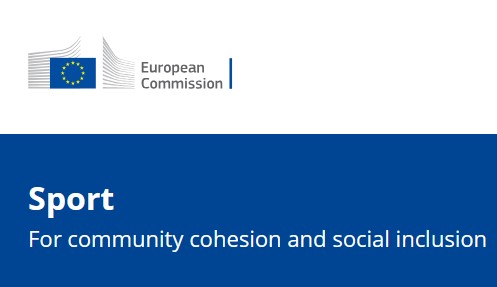Physical activity not only improves physical health but also enhances emotional wellbeing, reduces stress, and boosts self-esteem. Sport is a powerful tool that teaches young people essential life skills, fosters social inclusion, and brings people together from diverse backgrounds. The European Union has been actively supporting initiatives that deepen cooperation within the region and between the Western Balkans and the EU through sport, aiming to engage more young people in physical activities.
Sport also plays a critical role in reconciliation and the promotion of core values like tolerance and inclusion—values central to EU-Western Balkans cooperation. To address these challenges, the EU supports sport through funding, dialogue, and progressive policies designed to improve access to sports and leverage the economic potential of the sports sector.
Since 2018, the ‘European Week of Sport’ has been fully open to the Western Balkans, under the initiative ‘European Week of Sport Beyond Borders’. This EU-led campaign encourages active, healthier lifestyles across Europe, and since 2020, has received backing from the ‘EU4Youth’ programme, focusing on the Western Balkans. With the overarching theme #BeActive, this initiative has helped engage more young people in sport, fostering social unity and creating stronger links between communities, organisations, and countries.
The EU’s support for sports in the region is further reinforced by the Economic and Investment Plan for the Western Balkans and the Western Balkans Agenda on Innovation, Research, Education, Culture, Youth, and Sport. These frameworks aim to improve inclusion and cooperation and recognise sport as a key driver of economic development.
The European Commission supports sport through dialogue, programme funding and progressive policies designed to improve access to activity, harness sport economy and maintain sport integrity.
The new Erasmus+ programme, which includes a dedicated sports strand, further strengthens opportunities for cooperation and exchange. This expanded support enables sports organisations in the Western Balkans to collaborate internationally and develop policies and activities to promote sport in the region.
Learn More on the Erasmus + sport actions (2023 info day) Actions are designed to tackle societal and sport-related challenges. Opportunities are available for organisations under 3 Calls which address these challenges. A specific call on Capacity Building in the field of sport is also available as of 2022. It targets EU Member States and third countries associated to the Programme (previously called Programme countries) and the Western Balkans.
Erasmus+ Sport Info Day is organised by the European Commission (EC) and the Education, Audiovisual and Culture Executive Agency (EACEA), the Erasmus+ Sports Info Day allows important policies in this field to be translated into concrete actions on the ground. The EC and EACEA provide advice, guidance and updates on policy, as well as practical information – such as submission and selection procedures, highlighting best practices and common mistakes to be avoided. The event provides a collaborative, energetic forum for generating bespoke ideas that could advance the Erasmus+ sport programme. It also represents a unique opportunity for participants to network, to find partners from across programme countries and to work directly with project officers from the EACEA and EC.
Other EU initiatives
#BeInclusive EU Sport Awards
The awards promote innovative ideas and initiatives among other organisations and individuals across Europe. Winning projects are presented as examples of best practice in the field of inclusion and non-discrimination. This further improves social integration through sport. More information on winners and initiatives of 2023.
HealthyLifestyle4All initiative (2021-2023) and successor SHARE 2.0 initiative
The European Commission set up HealthyLifestyle4All, a two-year campaign running in 2021-2023 and aiming to link sport and active lifestyles with health, food and other policies. It showcased the European Commission’s commitment to promoting healthy lifestyles for all, across generations and social groups, noting that everyone can benefit from activities that improve health and well-being. Raising awareness of the importance of sports and physical activity for regional and local development has continued via the SHARE 2.0 initiative, which structures and strengthens collaboration and knowledge exchange on key subjects in the field of sport: access to EU funding, health, innovation, and sustainability. This community is also the follow-up to the Green Sport Expert Group, which drafted a report with recommendations on “Sport’s contribution to the European Green Deal”.
#BeActive awards
Supporting and celebrating projects and individuals dedicated to promoting sport and physical activity across Europe.
EU Sport Forum
Bringing everyone together to discuss challenges, opportunities and the future of sport in the EU.
European Week of Sport
To promote more active, healthier lifestyles to millions of people in Europe and beyond.
___
The European Union’s support for youth and sport in the Western Balkans is evident in its focus on promoting youth education, mobility, and participation in decision-making, as well as fostering the development of sports and healthy living. Through the Erasmus+ Programme, individuals from teh region have benefitted from mobility projects. The EU recognises the vital role of young people in shaping Europe’s future. By supporting sports initiatives and encouraging participation, the EU aims to strengthen social cohesion, enhance inclusion, and promote a healthier lifestyle across the region.

